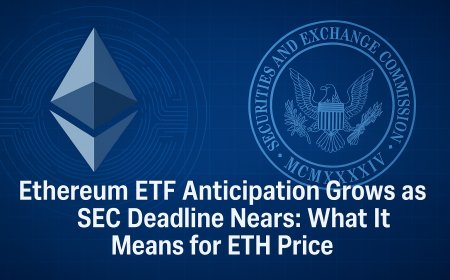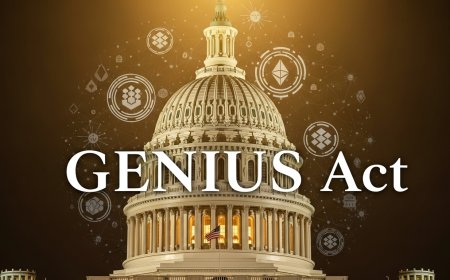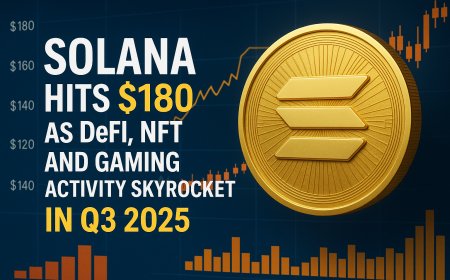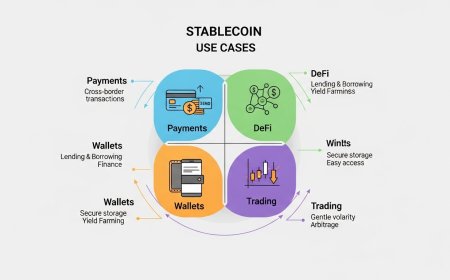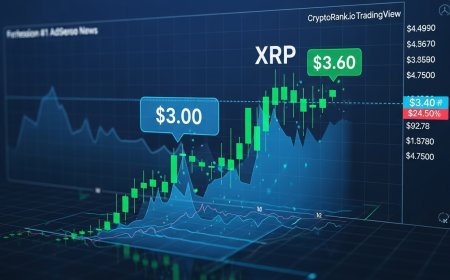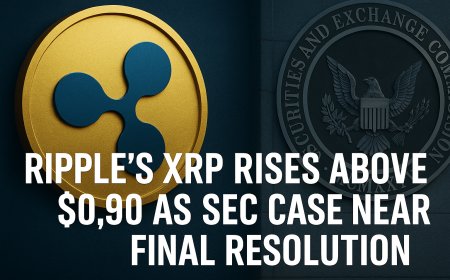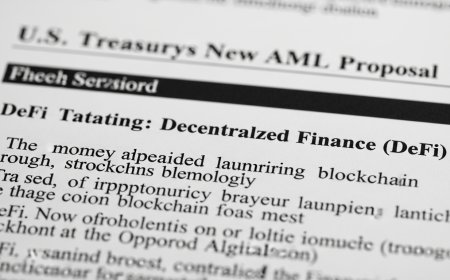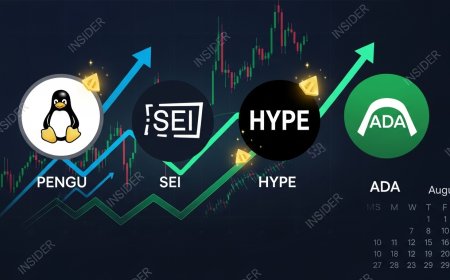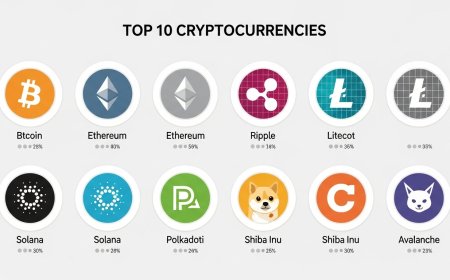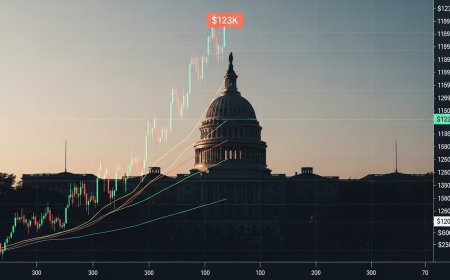BlackRock Files for Ethereum Spot ETF with the SEC
BlackRock moves to launch a spot ETH ETF in the U.S., indicating institutional confidence in Ethereum.

BlackRock's Ethereum ETF: A Landmark Achievement in Cryptocurrency Investment
BlackRock, the world's largest asset management firm with over $10 trillion in assets under management, has successfully navigated the complex regulatory landscape to secure approval for its spot Ethereum exchange-traded fund (ETF) from the U.S. Securities and Exchange Commission (SEC). The SEC approved 19b-4 forms for the ETFs from BlackRock, Fidelity, Grayscale, Bitwise, VanEck, Ark, Invesco Galaxy and Franklin Templeton, with eight issuers including BlackRock Inc., Invesco Ltd. and Fidelity Investments receiving approval for what represents a groundbreaking development in the institutional adoption of cryptocurrency investments.
The Significance of BlackRock's Ethereum ETF Filing
The approval of BlackRock's iShares Ethereum Trust marks a pivotal moment in the evolution of cryptocurrency as a mainstream investment vehicle. The Ether (ETH) ETF, dubbed the iShares Ethereum Trust, aims to "reflect generally the performance of" Ethereum, providing investors with regulated exposure to the world's second-largest cryptocurrency without the complexities of direct ownership. This achievement is particularly significant given that this step seemed like a virtual impossibility at the start of 2024, highlighting the rapid pace of regulatory evolution in the cryptocurrency space.
The significance extends beyond BlackRock's individual success, as it represents a broader institutional validation of Ethereum's position in the financial ecosystem. Unlike Bitcoin, which is primarily viewed as a store of value, Ethereum serves as the foundation for decentralized applications, smart contracts, and the burgeoning decentralized finance (DeFi) sector. The ETF approval legitimizes Ethereum's utility and positions it as a crucial component of the digital asset infrastructure that powers Web3 applications, non-fungible tokens (NFTs), and various blockchain-based financial services.
For the traditional financial markets, this development signals a fundamental shift in how regulatory bodies view cryptocurrency assets. The SEC's approval indicates growing confidence in the market structure and surveillance capabilities surrounding Ethereum trading, which has historically been a significant concern for regulators. This confidence stems from improved correlation analysis between spot and futures markets, enhanced market surveillance capabilities, and the maturation of cryptocurrency trading infrastructure.
Market Implications and Investor Impact
The approval of BlackRock's Ethereum ETF carries profound implications for both institutional and retail investors. BlackRock's Ethereum ETF leads the market with $3.7 billion in assets, demonstrating substantial investor appetite for regulated cryptocurrency exposure. This level of institutional adoption represents a significant milestone in cryptocurrency's journey toward mainstream acceptance.
For institutional investors, the ETF provides a familiar investment vehicle that fits within existing portfolio management frameworks. Traditional asset managers, pension funds, and insurance companies can now gain Ethereum exposure without the operational complexities of cryptocurrency custody, private key management, or regulatory compliance concerns associated with direct cryptocurrency holdings. This accessibility is expected to drive substantial capital inflows into the Ethereum ecosystem, potentially creating a virtuous cycle of increased adoption and price appreciation.
Retail investors benefit from the ETF structure through reduced barriers to entry, elimination of custody risks, and the ability to trade Ethereum exposure through traditional brokerage accounts. The ETF also provides tax advantages compared to direct cryptocurrency holdings, as investors can benefit from more favorable capital gains treatment and the ability to hold the investment in tax-advantaged accounts such as IRAs and 401(k)s.
The market impact extends beyond immediate price effects on Ethereum itself. The approval validates the entire cryptocurrency ecosystem and may accelerate the development of additional cryptocurrency-based financial products. This institutional validation could lead to increased corporate adoption of Ethereum-based solutions, expanded DeFi integration with traditional finance, and greater mainstream acceptance of blockchain technology.
Historical Context and Regulatory Evolution
The path to Ethereum ETF approval has been marked by significant regulatory challenges and evolutionary steps. BlackRock filed the S-1 with the Securities and Exchange Commission on Wednesday, with the world's largest asset manager officially filing for a spot Ether exchange-traded fund (ETF) with the United States Securities and Exchange Commission (SEC) on Nov. 15, initiating a complex regulatory review process that would span several months.
The regulatory journey was characterized by multiple delays and extended review periods. The delay pushes any decision on the proposed fund to March 10, with the U.S. Securities and Exchange Commission (SEC) extending its decision-making timeline for BlackRock's proposed spot Ethereum ETF, moving the date from January 25 to March 10, 2024. These delays were largely expected, as "Spot Ethereum ETF Delays will continue to happen sporadically" according to industry analysts.
The SEC's eventual approval was influenced by several key factors. The SEC is approving the Ethereum ETFs now, citing improved market regulation that can help detect and deter fraudulent and manipulative acts. The SEC also said that recent court decisions and improved correlation analysis between spot and futures markets for cryptocurrencies like bitcoin contributed to the regulatory confidence necessary for approval.
Historically, cryptocurrency ETFs faced significant skepticism from regulators due to concerns about market manipulation, inadequate surveillance, and the nascent nature of cryptocurrency markets. The approval of Bitcoin ETFs earlier in 2024 set important precedents and demonstrated that these concerns could be adequately addressed through proper market structure and surveillance mechanisms.
Technical and Structural Considerations
The iShares Ethereum Trust represents a sophisticated financial instrument designed to provide precise exposure to Ethereum price movements while maintaining the regulatory compliance necessary for traditional investment vehicles. The filing appeared to try and preempt possible SEC objections to the surveillance-sharing aspect, saying BlackRock believes the prices for CME Group's ether futures (and there are already ETFs that hold those) closely match spot ETH prices, addressing crucial regulatory concerns about market integrity.
The ETF structure involves several key components that ensure proper functioning and regulatory compliance. The fund holds actual Ethereum tokens through qualified custodians, providing direct exposure to the underlying asset's price movements. This direct holding mechanism differentiates spot ETFs from futures-based alternatives, which may experience tracking errors due to contango, backwardation, and rolling costs inherent in futures contracts.
Market making and authorized participant mechanisms ensure that the ETF's market price remains closely aligned with its net asset value (NAV). This structure allows for efficient price discovery and liquidity provision, making the ETF an attractive investment vehicle for both large institutional investors and retail participants. The authorized participant system also provides important arbitrage mechanisms that help maintain price stability and reduce tracking error.
Future Outlook and Next Steps
The successful approval of BlackRock's Ethereum ETF represents just the beginning of a broader transformation in cryptocurrency investment products. The SEC postponed its decision on Ethereum ETF options trading and will announce a final ruling on April 9 2025, indicating that additional derivative products and investment vehicles are under consideration.
The regulatory precedent established by this approval is likely to accelerate the development of additional cryptocurrency-based investment products. Industry observers anticipate that success with Ethereum ETFs may pave the way for ETFs tracking other major cryptocurrencies, diversified cryptocurrency indexes, and more sophisticated structured products that combine traditional assets with digital currencies.
Market participants should expect continued evolution in the regulatory framework governing cryptocurrency investments. The SEC's approval demonstrates a willingness to adapt regulatory approaches to accommodate innovative financial products while maintaining appropriate investor protections. This evolving regulatory stance may lead to clearer guidelines for cryptocurrency businesses and expanded opportunities for institutional participation in digital asset markets.
The long-term implications of Ethereum ETF approval extend beyond immediate investment opportunities. The institutional validation provided by major asset managers like BlackRock may accelerate enterprise adoption of Ethereum-based solutions, increase development activity in the DeFi ecosystem, and drive further innovation in blockchain-based financial services. As traditional finance increasingly integrates with decentralized technologies, the boundaries between conventional and cryptocurrency investments may continue to blur, creating new opportunities for investors and businesses alike.
The success of BlackRock's Ethereum ETF also demonstrates the importance of persistent regulatory engagement and the value of working within existing frameworks to achieve cryptocurrency adoption. This collaborative approach between industry participants and regulators may serve as a model for future innovations in the rapidly evolving intersection of traditional finance and digital assets.
What's Your Reaction?
 Like
0
Like
0
 Dislike
0
Dislike
0
 Love
0
Love
0
 Funny
0
Funny
0
 Angry
0
Angry
0
 Sad
0
Sad
0
 Wow
0
Wow
0









